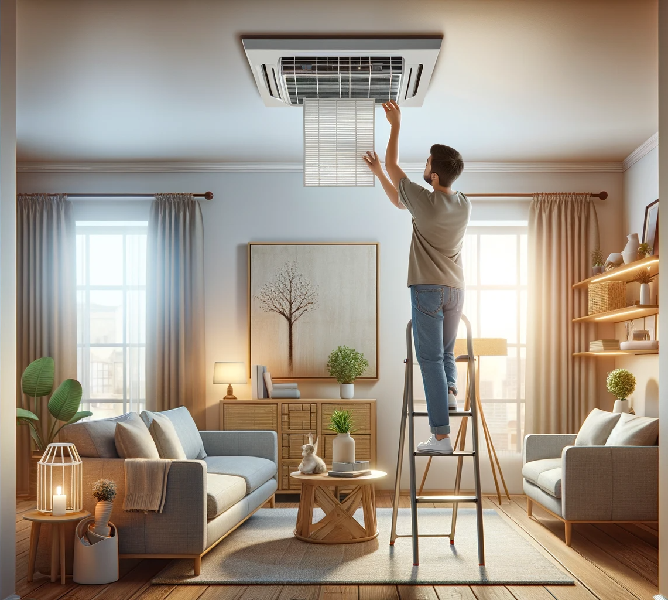
The Essential Guide to HVAC Filter Changes for Homeowners
Understanding HVAC Filters
HVAC filters are designed to trap dust, pollen, pet dander, and other airborne particles. Over time, these filters get clogged, reducing air flow and the system’s efficiency. This can lead to higher energy bills, reduced air quality, and even costly repairs. If you happen to be a home owner or a renter noticing diminished air conditioner performance, this guide may help guide you in the process of changing your home hvac system filter.
The Importance of Regular Filter Changes
- Improved Air Quality: The primary role of an HVAC filter is to clean the air circulating through your heating and cooling system. Regularly changing the filter ensures that the air in your home remains free of contaminants and allergens, which is particularly important for those with allergies or respiratory issues.
- Increased System Efficiency: A clean filter allows air to flow freely, reducing the strain on your HVAC system. This means it doesn’t have to work as hard to heat or cool your home, leading to improved efficiency and longevity of the system.
- Lower Energy Costs: When your HVAC system works harder due to a dirty filter, it uses more energy. Regularly changing your filter can lower your energy consumption and, in turn, reduce your utility bills.
- Preventing Costly Repairs: Dirt and neglect are the top causes of HVAC system failure. Regular filter changes can prevent dust and dirt from building up in your system, potentially saving you from expensive repairs or replacement.
How Often Should You Change Your Filter?
The frequency of filter changes depends on several factors:
- Type of Filter: Basic fiberglass filters may need to be changed monthly, while higher-end pleated filters can last up to six months.
- Home Occupancy and Size: Homes with pets or a large number of occupants may need more frequent changes.
- Allergies or Respiratory Conditions: If someone in your home has allergies or a respiratory condition, consider changing the filter more frequently to ensure the highest air quality.
- Environmental Factors: If you live in an area with high levels of pollution or construction, more frequent changes can help combat these external factors.
Choosing the Right Filter
Selecting the right filter for your HVAC system is also crucial. Filters are rated based on their MERV (Minimum Efficiency Reporting Value), which ranges from 1 to 16. Higher MERV ratings indicate a filter’s ability to capture smaller particles. However, too high a MERV rating can restrict airflow. It’s important to choose a filter that balances air flow with particle filtration.
DIY or Professional Help?
Changing an HVAC filter is generally a straightforward DIY task. However, if you’re unsure about how to choose the right filter or how to change it, professional help is always a good idea. HVAC professionals can also conduct regular maintenance checks to ensure your system is running optimally.
Final Tips
Regularly changing your HVAC filter is a simple yet essential part of maintaining your home’s HVAC system. It ensures cleaner air, improves system efficiency, reduces energy costs, and helps prevent costly repairs. As a homeowner, staying on top of this task can lead to a healthier, more comfortable living environment and significant savings in the long run. Remember, a small step in maintenance can lead to a giant leap in home comfort and health. Please click here for more information about air conditioner filters.

